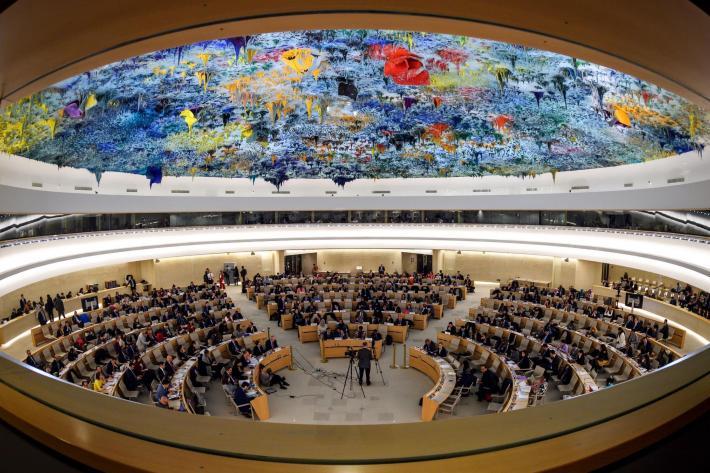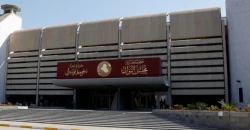Human Rights Committee asks Iraq about Displaced Persons and sexual violence

Shafaq News/ The Human Rights Committee this morning concluded its consideration of the sixth periodic report of Iraq on how it implements the provisions of the International Covenant on Civil and Political Rights, with Committee Experts commending the State for taking steps to pursue and bring to justice the perpetrators of sexual violence, also asking for information about the civil and political rights of displaced people.
A Committee Expert commended the State party for taking steps to pursue and bring to justice the perpetrators of sexual violence committed by ISIL, and for having put in place a centre to investigate crimes of genocide, the ISIL Crime Investigation Unit. Another Committee Expert raised the issue of internally displaced people, also citing reports that women and children living in camps were often victims of discrimination for perceived ties to ISIL, and were subject to sexual violence. What measures had Iraq undertaken to prevent discrimination and sexual abuse of women and children in camps for internally displaced persons, and to prosecute those responsible?
Abdul Karim Hashim Mustafa, Permanent Representative of Iraq to the United Nations Office at Geneva, in opening remarks noted that while attacks from the ISIL terrorist organization were continuing to hamper efforts to promote and protect human rights in the State party. However, Iraq was committed to implementing its international commitments.
Salar Abdulsattar Mohammed, Minister of Justice of Iraq and head of the delegation, also in opening remarks, reaffirmed Iraq's commitment to respecting its international obligations and to deal positively with Treaty Bodies, adding that the Iraqi judiciary was working to protect human rights. It was an independent body working to build a democratic system that respected and protected human rights.
Dindar Zebari, Coordinator of International Advocacy of the Kurdistan Regional Government, also in opening remarks, noted that the Kurdistan region had the largest share of shelters for displaced persons and refugees, and currently housed almost a million displaced persons and refugees.
In the ensuing discussion, the delegation explained that electoral documents had been issued to displaced persons. The State had also devised programmes to support refugees and displaced persons' return to society. There were no restrictions on the movement of displaced persons, except people being socially and psychologically rehabilitated. Such persons were returned to their families after rehabilitation. A committee within the Ministry of Interior was working on protecting the rights of displaced children and providing them with essential services. The Ministry of Migration had prepared a database of internally displaced persons in all the governates of Iraq. It had also provided facilities allowing internally displaced persons to vote in elections. Further, it had supplied buses to move internally displaced persons to voting booths. There were 120,000 internally displaced persons who were eligible to vote, including 61,800 females.
In concluding remarks, Mr. Mohammed thanked the Committee for the dialogue, saying that it was an opportunity to re-examine the realities of human rights with Iraq.
Mr. Mustafa, also in concluding remarks, added that the recommendations of the Committee would contribute to building a system based on respect for the civil and political rights of all Iraqi citizens.
Photini Pazartzis, Committee Chairperson, in concluding remarks, thanked the delegation for the fruitful and constructive dialogue, and for its efforts to provide answers to the many questions asked by the Committee. The dialogue, she stated, and the ensuing recommendations constituted a strong basis for continued efforts to strengthen human rights in Iraq.
The delegation of Iraq was made up of representatives of the Ministry of Justice; the Ministry of Administrative Affairs; the Kurdistan Regional Government; the Supreme Judicial Council; the Human Rights Bureau; the Council of State; the Department of Women Empowerment; the General Secretariat for the Council of Ministers; the Ministry of Interior; the Ministry of Immigration and Displaced Persons; the Correctional Directorate; the Kurdistan Government Coordinator for International Advocacy; the Ministry of Labour and Social Affairs; and the Permanent Mission of Iraq to the United Nations Office at Geneva.





